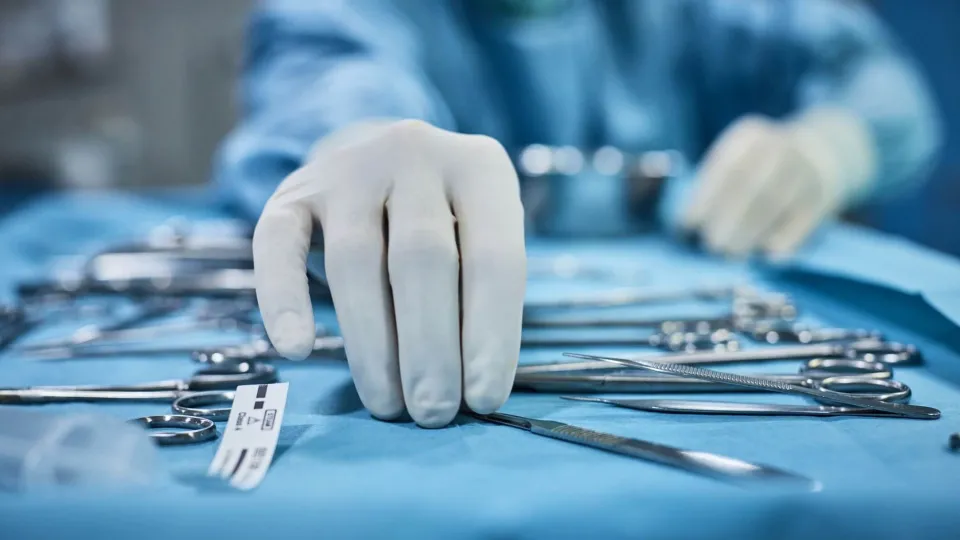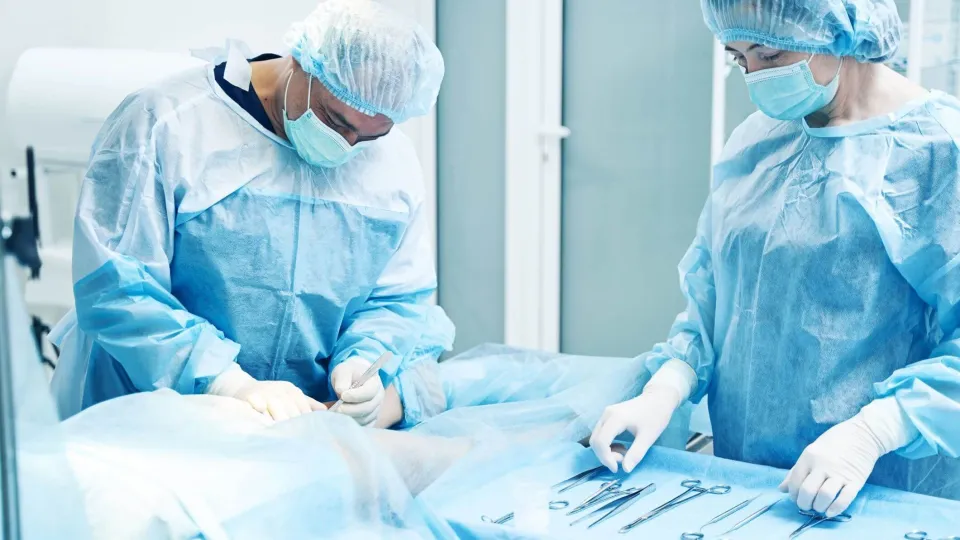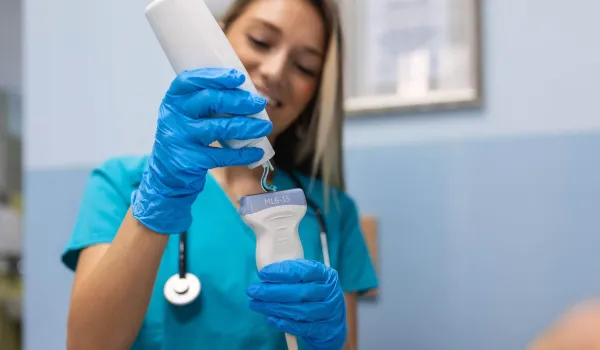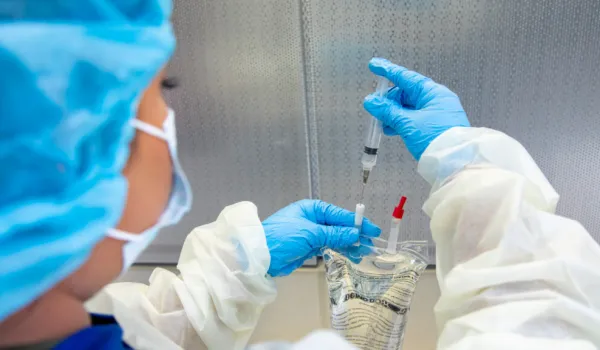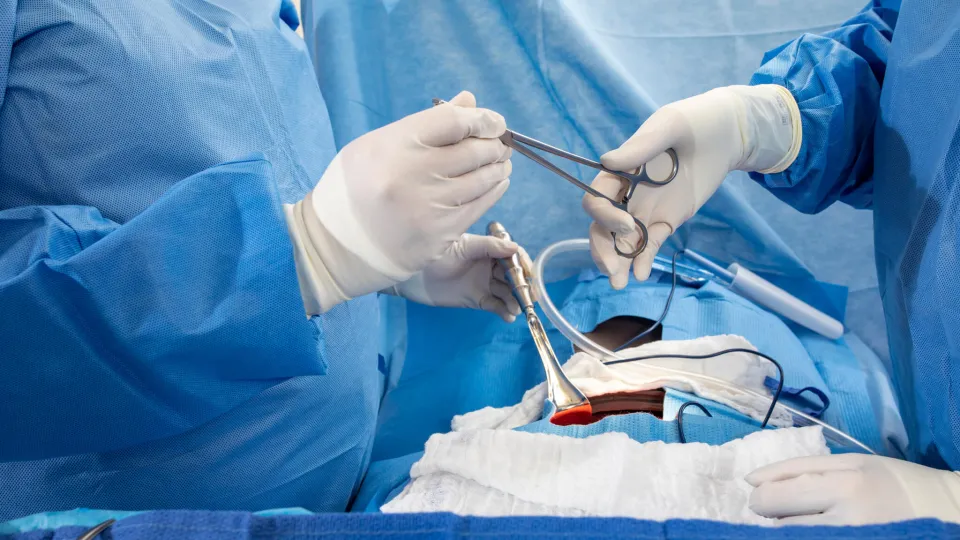
Surgical technology is an exciting allied health field focused on assisting surgeons and other healthcare professionals before, during, and after surgical procedures. People in this field are an important part of the surgical team because they take care of the details that help operations go smoothly and safely. Surgical technologists, or scrub techs for short, play a vital role in monitoring patients and making sure operating rooms are sterile and organized.
This large and growing healthcare field provides career opportunities across the country. In 2022, there were 106,479 surgical technologists (74.2% women and 25.8% men) working in the United States. This sector projects a growth rate of 6% from 2023 to 2033.
What Does a Surgical Technologist Do?
A surgical technologist has important jobs before, during, and after any surgical procedure. They are responsible for pre-operative duties, including:
- Researching the surgical procedure.
- Sterilizing and assembling the required equipment for procedures in the order the surgeon needs.
- Ensuring all surfaces, equipment, and scrubs are sterile.
- Ensuring all equipment is functional and safe to use.
- Helping surgeons and nurses to secure sterile scrubs and masks.
- Preparing patients for surgery, including moving them into position, preparing their skin with non-invasive procedures, and draping the sterile field.
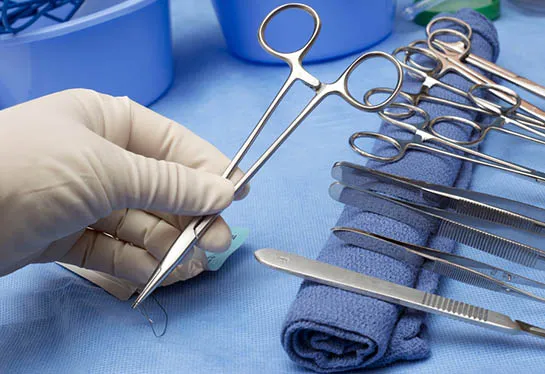
During a surgical procedure, a surgical technologist performs intra-operative duties, such as:
- Handing surgeons tools, such as scalpels, scissors, and electrocautery equipment for cutting, needle holders for making sutures, and forceps for holding and manipulating tissue.
- Directing light on the surgical field to improve visibility.
- Holding tools in place, such as retractors.
- Adjusting sutures.
- Monitoring surgical sponges and equipment, such as different kinds of scopes.
- Monitoring patient vitals and communicating any issues to the health care professionals.
At the end of a surgical procedure, a surgical technologist performs the following post-operative tasks:
- Cleaning the operating area.
- Cleaning and returning instruments that the surgical team doesn't need for the next procedure.
- Sterilizing instruments for the next procedure or asking sterilizing specialists to perform this task.
- Preparing the operating room for the next procedure.
Read: Explaining the Surgery Team
How to Become a Surgical Technologist
Becoming a surgical technologist is relatively faster than qualifying for many other healthcare roles. Courses of study help students to develop key skills, including sterilization, perioperative case management, and understanding medicine, technological science, and surgical technology. For example, candidates can complete a Surgical Technology program at Concorde Career College. The Surgical Technology program at select campuses is accredited by the Commission on Accreditation of Allied Health Education Programs or the Accrediting Bureau of Health Education Schools.
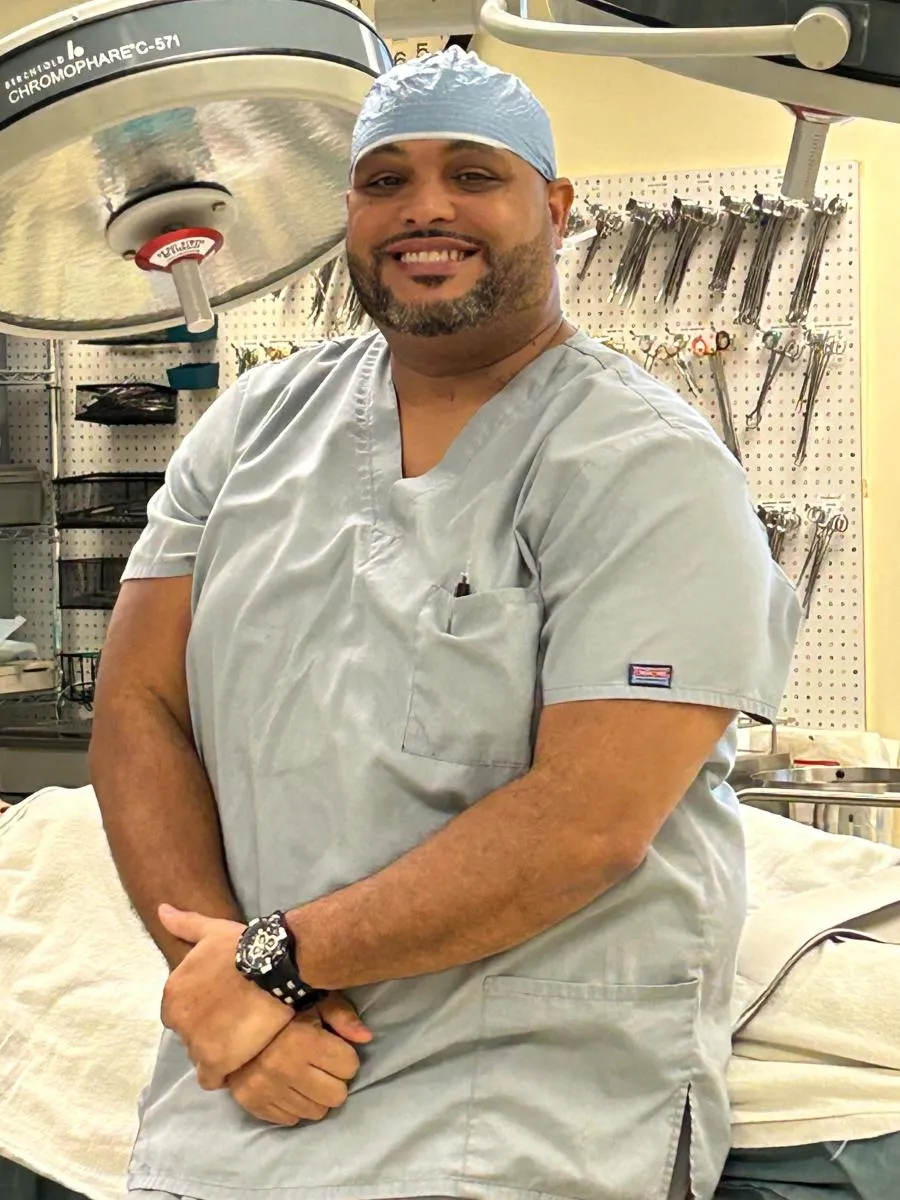
Luis Ortiz, AAS CST Director of Concorde's Surgical Technology Associate Degree Program in Orlando, FL
Some schools may have extra requirements, such as requiring students to pass a cardiopulmonary resuscitation course or a criminal background check.
Students can complete the Surgical Technology Associate Degree program with Concorde in as few as 17 months. After graduating from a surgical technology training program, most people obtain professional certification through the National Board of Surgical Technology and Surgical Assisting. At the end of the study period, the NBSTSA's Certified Surgical Technologist exam provides professional certification. While certification is optional, it's an employment requirement in some states.
The NBSTSA accepts graduates from accredited programs, regardless of their age, country of origin, and other characteristics. To sit the Certified Surgical Technologist exam, graduates of a CAAHEP or ABHES surgical technology program must submit one of the following documents to the NBSTSA:
- A notarized letter on an institutional letterhead from the program's director stating the student's name, graduation date, and degree type.
- A copy of their graduation certificate.
- A study transcript.
Graduates of a military surgical technology training program completed before, during, or after CAAHEP accreditation can submit one of the following:
- A copy of their DD214 stating the base's location.
- A copy of their graduation certificate.
- A SMART transcript.
Read: How to Become a Surgical Tech
Surgical Technology Programs
Surgical technology programs can vary depending on the institution and its accrediting body. As certificate programs are shorter, they focus on key areas of learning. Concorde's Surgical Technology Associate Degree program provides a broader, more in-depth curriculum. Topics include:
- Surgical equipment and instrumentation sterilization and preparation.
- Patient care for procedures, pre-, during, and post-operatively.
- Sterile field preparation, asepsis and sterile techniques, and infection control.
- Passing instruments, medical supplies, and equipment to surgeons.
- Operating theater cleaning and surgical field maintenance.
- Assisting health care professionals during surgeries.
- Hands-on experience in real healthcare environments.
Task trainers, mannequins and standardized patients, screen-based simulations, and virtual and augmented reality simulations can also provide realistic, immersive training outside a healthcare setting.
People studying for an associate degree may also take classes in general topics such as math and communication.
Career Outlook
With a projected growth of 6% from 2022 to 2032, the career outlook is very positive for surgical technologists. Healthcare facilities hire new surgical technologists to replace employees who are moving to different roles or retiring from the workforce.
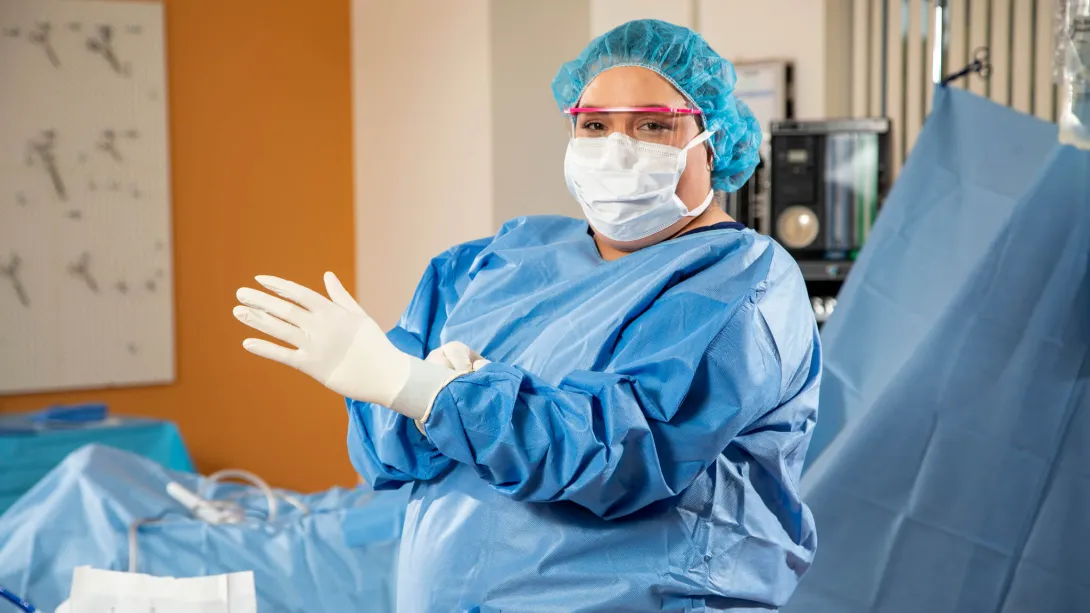
Challenges and Rewards of Surgical Technology
Careers in surgical technology can be challenging, but these roles are also rewarding. Some challenges that surgical technologists may face include:
- A stressful work environment and long hours that impact work-life balance.
- Physical demands when standing for long periods.
- Exposure to infectious diseases and bodily fluids.
Some of the rewards that surgical technologists enjoy include:
- Working in an exciting, fast-paced environment.
- Performing work that makes a difference in patient outcomes.
- Opportunities for specialization.
Surgical technologists can take steps to minimize the impact of the professional challenges they face. The role can be stressful, but prioritizing physical health and practicing stress management techniques, such as mindful thinking and deep breathing, can help surgical technologists stay calm. Setting boundaries can contribute to maintaining a good work-life balance. Professional development and a good support system can also help them better manage the challenges of the job.
Read: Common Characteristic Traits Surgical Technologists Should Have to Be Successful
Advancements in Surgical Technology
Recent advancements in surgical technology and a shifting health landscape have seen this field rapidly evolve. For example, the COVID-19 pandemic saw telemedicine become mainstream. Concerns about the virus led healthcare organizations to enhance infection control measures, including limiting time with visitors and establishing dedicated operating rooms for positive patients. Other recent advancements include:
- Negative-pressure operating rooms that limit the spread of infections to nearby operating rooms.
- Minimally invasive procedures, such as keyhole and robotic surgery, that reduce trauma, recovery time, and anesthesia risks.
- Surgical simulation, including VR training, that provides rich, immersive instruction opportunities without putting human patients at risk.
- Robotics and artificial intelligence that provide surgical assistance to minimize trauma and improve patient recovery and outcomes.
- AR that facilitates remote collaboration and provides digital information to help visualize the body's structures, allowing surgeons to work more accurately and efficiently.
- 3D printers that create new surgical equipment and organs.
- Big data that improves patient care by enabling surgical teams to identify trends and risks.
Surgical technologists must adapt quickly to each new advancement to best assist their team and improve patient outcomes. As the field of surgical technology continues to innovate, surgical technologists must adjust. Future advancements and the application of robotics, AI, VR, and AR are just some of the upcoming trends earmarked to change the face of surgical technology.
Conclusion
Surgical technology is an exciting field that puts people on the frontline of patient care without needing to spend many years in the classroom. Surgical technologists play an essential role in assisting surgical teams to achieve the best patient outcomes. If you'd like to join them, start exploring this career with a Surgical Technology training program at Concorde. There's no better time to take the next steps toward a career in surgical technology.
“What is Surgical Technology?” TechnologyBlox, https://technologyblox.com/what-is-surgical-technology/
“Healthcare Careers: The Importance of Surgical Technologists,” Aureus Medical Group, https://www.aureusmedical.com/blog/healthcare-careers-the-importance-of-surgical-technologists/
“Precision and Care: The Remarkable Journey of Surgical Technologists,” Focus Staff, https://focus-staff.com/precision-and-care-the-remarkable-journey-of-surgical-technologists/
“Surgical Technologists,” Data USA, https://datausa.io/profile/soc/surgical-technologists
"Surgical Assistants and Technologists," U.S. Bureau of Labor Statistics, https://www.bls.gov/ooh/healthcare/surgical-technologists.htm#tab-6
“54 Basic Surgical Instruments and Their Use in Medical Procedures,” GerMedUSA, https://www.germedusa.com/blog/54-basic-surgical-instruments-and-their-use-in-medical-procedures.aspx
"What to Know About Being a Surgical Technologist in 2024," Research.com, https://research.com/careers/what-to-know-about-being-a-surgical-technologist
“What Degree Does a Surgical Technician Need?” All Allied Health Schools, https://www.allalliedhealthschools.com/surgical-technologist/training/
“Surgical Technologist: Education, Professional Certification & Careers,” All Allied Health Schools, https://www.allalliedhealthschools.com/surgical-technologist/
“Surgical Technologist,” Cleveland Clinic, https://my.clevelandclinic.org/departments/health-sciences-education/careers/career-options/surgical-technologist
“CST First Time/Retake Applications,” The National Board of Surgical Technology and Surgical Assisting, https://www.nbstsa.org/cst-first-timeretake-applicants
“A Tour at a Surgical Technology Simulation Lab,” SurgicalScience, https://surgicalscience.com/insights/news/a-tour-at-a-surgical-technology-simulation-lab/
“How to Become a Surgical Tech: 4 Steps, Degree Choices,” https://www.degreechoices.com/careers/how-to-become-a-surgical-tech/.
“Surgical Assistants and Technologists,” U.S. Bureau of Labor Statistics, https://www.bls.gov/ooh/healthcare/surgical-technologists.htm
“Maintaining Work-Life Balance as a Surgical Tech: Avoiding Burnout and Stress,” Medium, https://medium.com/@SurgicalSpecialtyStaffing/maintaining-work-life-balance-as-a-surgical-tech-avoiding-burnout-and-stress-7bd6253f93fc
“Rethinking Air Pressure in Operating Rooms Could Save Lives,” Stantec, https://www.stantec.com/en/ideas/topic/buildings/rethinking-air-pressure-in-operating-rooms-could-save-lives
“Minimally Invasive Surgery,” Cleveland Clinic, https://my.clevelandclinic.org/health/procedures/minimally-invasive-surgery
“Exploring the Role of Simulation Training in Improving Surgical Skills Among Residents: A Narrative Review,” Cureus, https://www.ncbi.nlm.nih.gov/pmc/articles/PMC10549779/
“Stepping Into the OR of the Future: Trends in Surgery for 2024,” CSurgeries, https://csurgeries.com/recent-news/stepping-into-the-or-of-the-future-trends-in-surgery-for-2024/
Take The Next Step Towards a Brighter Future
Interested in learning more about our Surgical Technology program?
We have a Concorde representative ready to talk about what matters most to you. Get answers about start dates, curriculum, financial aid, scholarships and more!


